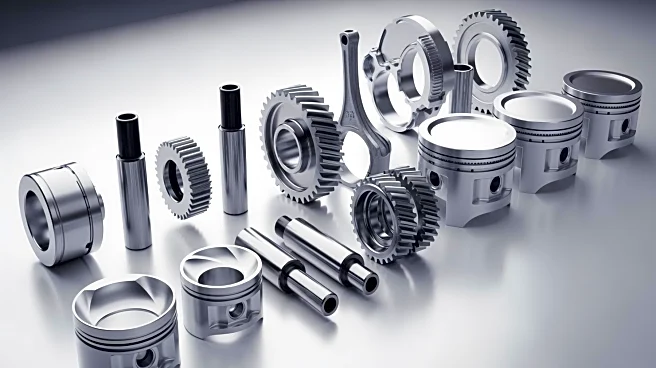What's Happening?
The Trump administration has quietly expanded the list of auto parts subject to tariffs, a move that could potentially reduce costs for automakers and suppliers. This expansion is part of a broader strategy
to adjust the economic landscape for the automotive industry, which has been facing various challenges including supply chain disruptions and fluctuating demand. The tariffs are designed to protect domestic manufacturing by making imported parts more expensive, thereby encouraging the use of locally produced components. This policy shift is expected to have significant implications for the cost structures of automakers operating in the U.S.
Why It's Important?
The expansion of tariffs on auto parts by the Trump administration could have a substantial impact on the U.S. automotive industry. By potentially lowering costs for automakers, this move might enhance the competitiveness of U.S.-based manufacturers against foreign competitors. It could also lead to increased investment in domestic production facilities, thereby boosting job creation in the sector. However, there is a risk that increased tariffs could lead to higher prices for consumers if automakers pass on the additional costs. The policy could also strain trade relations with countries that export auto parts to the U.S., potentially leading to retaliatory measures.









